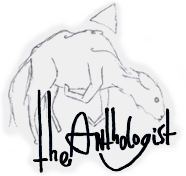Show me how to kill you ¹
With relish, live in sex and carnage; ²
A clear freezing point
Show me how to kiss you ¹
Savour the evening without awaiting the light of dawn
Pendulum, which dances
Draw out the dark from the world;
You’ll restore its boundary line to zero
“PENDULUM”
Let’s play a song—a waltz for existence
An unfinished dream
Slips through a night that won’t end
Into a maze that completely fills a vacuum;
I connect the broken needle to be able to soothe us
So let’s put a stop to this instant of stillness
error code:99
error code:99
error code:99
error code:99
Love-hate and isotopes; ³
A feeling of unity in both halves
Let me down, Let me down, Let me down
A glittering flower came unstuck to fade
Even if it’s distorted, I won’t let its brilliance be broken
The jet-black darkness bared its fangs;
Find your footing to keep the spark of hope from disappearing
An unfinished dream
Slips through a night that won’t end
Into a maze that completely fills a vacuum;
I connect the broken needle to be able to soothe us
So let’s put a stop to this instant of stillness
Can you feel it?
Can you feel it?
I won’t fade
I won’t fade
.
NOTES / INTERPRETATION:
Blue font indicates text originally written in English in the official booklet.
oo1. Both of these lines, originally written in English, are followed by lines in Japanese that echo the first two words, Show me. In Japanese, the word shoumi as written in the lyrics is a common word, but only as part of the compound for expiry date. Alone, it simply means the appreciation, savouring, or relishing of something (food, generally). Though it is the same word, I translated it slightly differently in the two lines (relish, savour), and it made for some very tricky phrasing. Not only does this bilingual repetition sound cool, it also ties the two meanings together when you actually read the lyric booklet and realize they are written differently (show me / appreciation). Like a command or request in the margins.
oo2. Typically, the word haru means spring. However, here I made the decision to translate that word to sex; it’s a much rarer meaning, and I can’t say for certain whether that was the one that Show was referring to in this instance, but I will explain my reasoning and you can imagine the meaning being spring instead, if you think it makes more sense. This line is sandwiched in between two other lines written in English that are exactly the same except that one uses the verb kill and the next uses the word kiss. Thematically, this contrast in meaning is rather similar to sex and carnage, isn’t it? Japanese is a far less direct a language than English, and so you can use the word haru, which ordinarily just means spring, but it can still carry the implication of other meanings without stating so outright. Part of the interpretation, then, is left up to the listener, and in this case, given the lines that come before and after, I chose to interpret it this way. Take it with a grain of salt!
oo3. Isotopes are atoms of the same element which have the same number of protons, but a different number of neutrons; they have the same chemical properties, but can have slightly different physical properties (reference, if you’re curious). I think Show means to compare love and hatred to isotopes of the same element. That is, they have the same chemical properties (extremely high, passionate emotion) but slightly different physical properties. To put it in real simple terms, you might want to have sex or a friendly spar with someone you love, but engage violently with someone you hate. Also, the word for love-hate (aizou) sounds a lot like the way Show sings the word isotope in this line… another echo!
アリス九號. ★ PENDULUM → PLANET NINE (将・2018)
ALICE NINE. – PENDULUM | From PLANET NINE (Show – 2018)
Original text translated from Japanese.
Listen on itunes/Spotify.

